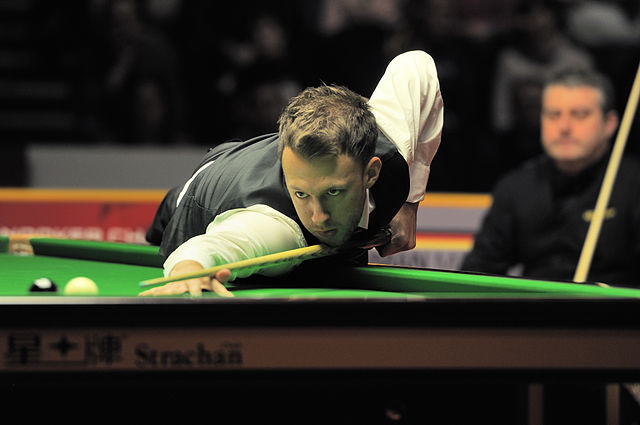Is snooker stuck in the past?
The World Snooker Championship is currently ongoing, but the major snooker story over the past week has come thanks to Judd Trump. The world number one has warned that snooker is failing to move with the times, and that the sport risks being left behind if changes aren’t made to attract a younger audience. He has plenty of ideas about what could be done, from altering commentary to encouraging players to make the game more appealing, but his comments have ignited a debate at the heart of snooker fandom – what is snooker currently, and how should it evolve?
Speaking to the Metro, Trump drew fault with snooker’s dress code: “I’ve got the golf on and their clothing is all changing, becoming more lenient for the younger generation. People don’t want to go around dressed in waistcoats nowadays. I don’t want to be stuck in a waistcoat walking to the Crucible, it’s not cool to be wearing that nowadays. If I think that then I know people younger than me won’t want to be dressed like that either.” The dress code hasn’t really changed since the 70s, and it is comparatively old-fashioned if you look at other sports.
Everything they’re doing is 15 years out of date and not enough is being done to advertise the younger players in the game
– Judd Trump
He also highlighted the fact that snooker coverage tends to focus on well-known names from earlier eras, rather than young players, and notes that risks losing a younger generation. “It’s how they advertise games. A lot of younger players are coming through in this World Championship and the social media all seems to be about people who were popular 30 years ago. They can’t keep these players in the spotlight forever, they haven’t done anything for 10-15 years. Everything they’re doing is 15 years out of date and not enough is being done to advertise the younger players in the game.”
Trump’s comments were echoed by Mark Allen, who said: “In a lot of ways, they’re so stuck in the past. They talk about the past people in the game and there’s not as much talk about the current crop. Talk about them, talk about the ones carrying the sport right now and give them a platform to build their own profiles and bringing new people into the game wanting to be the next Judd Trump, Neil Robertson or Mark Selby. There’s no real talk of that. I think that’s to the detriment of the top players that are currently there and that’s definitely something World Snooker can look into more. Sooner or later you have to move forward.”
To a certain extent, these criticisms are well-founded. In the run-up to the World Championship, most mainstream coverage of the sport was interested in Stephen Hendry making a comeback at the Gibraltar Open. Snooker is governed by a sense of nostalgia, and this is in part because it was such a phenomenon in its heyday. When Steve Davis and Alex Higgins wielded their cues, snooker attracted giant audiences – the 1985 black ball final was watched by 18.5 million people in the UK. Yet, by focusing on past champions, it does drown out potential future ones.
I appreciate that many of the big names in the sport at the moment are older ones – Ronnie O’Sullivan and the class of ’92 still win year in, year out – but there are many new and exciting players who barely get the coverage. Why would you be excited to watch names you simply don’t know? They’re certainly harder to promote because they don’t have the track record or the big wins, but I think snooker needs to make the effort for the long term. We’re running out of snooker clubs, and we should be nurturing new talent, not ignoring it.
If snooker remains in its glorious past, it’s possible it may have a significantly less glorious future
I agree with some of Trump’s other comments. He speaks of the lack of passionate commentary, with older commentators falling into stories from the past, and praises Europsort’s Andy Goldstein for making snooker more accessible and exciting. This situation is easy to remedy – bring younger and current players into the commentary box, opening the door for more diverse analysis of matches. Players should push to be part of this, and they should aim to be a little more exciting on the table. Obviously, I don’t think they should sacrifice matches in pursuit of a trick shot, but people love exhibition shots when a frame is over. This is what gets traction and coverage on social media, not hour-long safety matches (which, although still interesting and important, don’t engage a wider audience).
In the Metro article, Trump was keen to stress that his comments were intended as constructive, and that he doesn’t think a radical change is necessary: “50% of people probably love what’s going on and love seeing the older players but the other 50% don’t, so there’s got to be a compromise. A bit more could be done by listening to some of the younger players’ thoughts and they think we could go about making the game more glamorous and more appealing.”
And he’s right to raise these points, because some of them are really important for snooker’s future. There’s so much potential to expand the sport, and I think there needs to be a more concerted effort to celebrate the brilliant snooker that is happening now. If snooker remains in its glorious past, it’s possible it may have a significantly less glorious future.

Comments